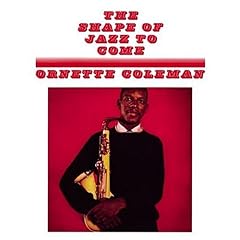 Please somebody help me.
Please somebody help me.There are still six weeks left until Election Day, but I can't help checking the polls and the latest news several times each day. I go to Politico, Talking Points Memo and Daily Kos. I keep an eye on the electoral college at FiveThirtyEight and NPR.
Then throw in the fact that the Phillies are fighting for the NL East title, or at least a playoff spot, with just over a week to go. And my Eagles are playing one of the toughest early season schedules to date.
Please somebody take my computer away.
The Stand Ins. Okkervil River.
You'd think after two critically received albums and a spot among the indie-rock elite, Okkervil singer Will Sheff would be happy. Instead, he spends most of this album discussing sadness, loss and the phoniness of pop music, as evidenced on the very catchy "Pop Lie." (Check it out in Hear This!). The music, however, belies the depressing lyrics. Whether it's country rockers or songs with appropriate
 ly timed horn charts, the music is very accessible. Yet, Sheff's band remains as unique as any on the indie landscape. This is a worthy successory -- it's actually billed as a part two -- to last year's Stage Names, one of Distractions Top 10 Albums of 2007.
ly timed horn charts, the music is very accessible. Yet, Sheff's band remains as unique as any on the indie landscape. This is a worthy successory -- it's actually billed as a part two -- to last year's Stage Names, one of Distractions Top 10 Albums of 2007.The Shape of Jazz to Come. Ornette Coleman.
The 78-year-old saxophonist has enjoyed a bit of resurgence lately. In 2006, his Sound Grammar won the Pulitzer Prize and he performed last year at the Bonaroo Music Festival (sadly, he collapsed that day due to a heat stroke). As a jazz neophyte, I'm just discovering Coleman's music. The descriptions -- free jazz, avante-garde, controversial -- make the music sound much more daunting than it really is. The Shape of Jazz to Come is bluesy, melodic and, as Amazon called it "infectious."

Coleman is the subject of our Weekly Wikipedia link.
In Defense of Food. Michael Pollon.
Pollon likes to say that his In Defense can be summarized by the first seven words in the book which also happen to be in small print on the cover -- Eat food. Not too much. Mostly plants.
This is good advice and does partly summarize In Defense. But the book goes way beyond that. Pollon looks at the Western diet and the diseases that result from it. He notes that most of what we eat today is some type of processed product, not actually food. And he finds most of our problems starting back in the '70s when the American Heart Association pushed the industry to "modify" foods to get out saturated fats. And the FDA the followed, by repealing a 1938 law, allowing the spread of "imitation" foods like the no-fat snack products that jammed the supermarket shelves. Food became more about nutrition. And, oddly enough, the more it became about nutrition, the less healthy it became.

As far as food books go, it's an easy, interesting read. I'm currently reading Tom Piazza's engrossing City of Refuge. I'll post on that next week.
Wish You Were Here. Pink Floyd.
Sadly, keyboardist Richard Wright died last week. I felt like listening to some Floyd. Their follow-up to Dark Side of the Moon, though written about original Pink Floyd member Syd Barrett, seemed appropriate. I know I'm supposed to drool over The Piper at the Gates of Dawn. I love Lucifer Sam. But that album does not stand up to the test of time -- at all. And later Pink Floyd, starting with The Wall, is bloated and inconsequential. Give me the three mid-career albums -- Dark Side of the Moon, Wish You Were Here and, my favorite, Animals.


